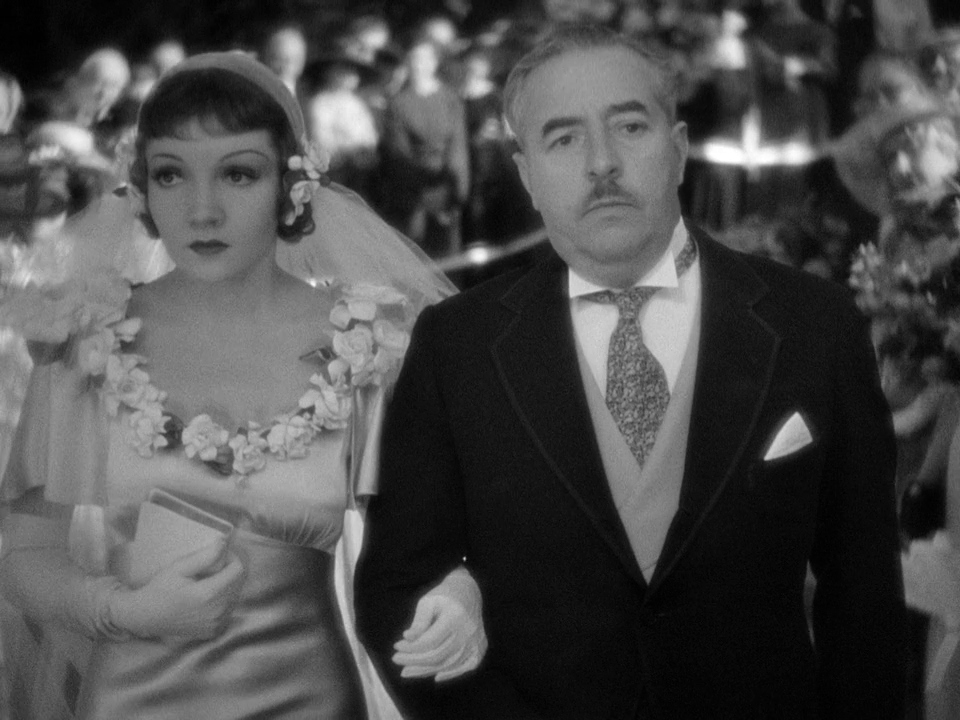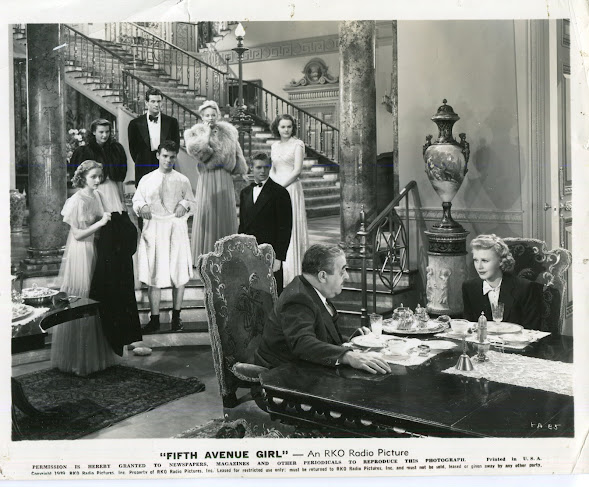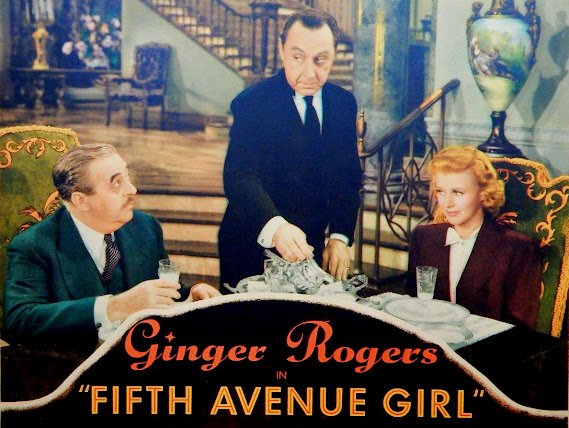A Marxist Revolution on Fifth Avenue. Or Vice Versa.
In last week's It Happened One Night, Walter Connolly features in a supporting role as Claudette Colbert's millionaire father.
Our next film is a rare starring role for Walter Connolly, who was most commonly seen in supporting roles throughout the 1930s (he eventually died in 1940 at the age of 53).
In Fifth Avenue Girl, Connolly plays Timothy Borden, a self-made millionaire living in a palatial Fifth Avenue mansion with his wife and two children, along with a full bevy of service staff.
Although he is technically living the American Dream, Borden is unhappy. His factory is losing money and facing crippling tax bills. His workers are threatening to strike if their demands are not met. His wife has been stepping out with other men, his kids are a pair of layabouts and his secretary is the only one who seems to have remembered his birthday.
Feeling sorry for himself, he follows his butler's advice and takes a walk in Central Park, where he meets Ginger Rogers, a recently-unemployed young woman who strikes up a friendly (and platonic) conversation with him. On a whim, he invites her to join him for a birthday celebration, and the ensuing spectacle shakes up everyone's life in unexpected ways.
Fifth Avenue Girl is the kind of film that could only have been made at the peak of the "New Deal". This was virtually the only moment in American history when the country was genuinely "left wing" (by any international definition of the term) and it's also the only moment when popular culture was able to openly celebrate the working class.
Even though Borden is a millionaire with a Fifth Avenue address, he is portrayed as a staunch "man of the people" who built himself up from nothing and actually regrets the direction his life has taken. Far from bringing him happiness, the trappings of capitalist success have brought him nothing but misery. His daughter has fallen madly in love with the family chauffer who spends the entire movie spouting Marxist ideology (something you wouldn't even be able to joke about, a decade later).
At the centre of the story is Ginger Rogers, already a ten-year screen veteran in 1939 and establishing herself as one of RKO Studio's greatest assets (we're going to be seeing quite a bit of Ginger over the next couple of months).
Fifth Avenue Girl has often been compared to an earlier film by the same director; My Man Godfrey (released in 1936) but this film does much more than reverse the genders of the earlier film.
In My Man Godfrey, William Powell plays a homeless man who is hired to work as a butler for a wealthy and rather spoiled household, but who is ultimately revealed to be just as upper-class and educated as they are. Breeding, it would seem, can never be disguised, and Class will always re-assert itself. Go Eugenics.
Ginger Rogers, by contrast, is exactly what she appears to be when Walter Connolly meets her in the park: a working-class woman who has just lost her job and is navigating her way through the Great Depression, one day at a time. She is not revealed to be some upper-class debutante slumming it in Central Park, and the impact she has on the Fifth Avenue household is genuine and entirely her own doing.
It should also be noted that Fifth Avenue Girl is very funny, often at the expense of people who try to force themselves into their pre-allotted roles in society.
Ginger Rogers is the catalyst by which everyone else is able to find their own balance, without concern for social pressures or class snobbery.
We will screen Fifth Avenue Girl at 7.30 on Thursday, the 15th of February at the Victoria Park Baptist Church.














Comments
Post a Comment